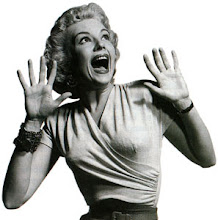
So we come to the third and final film instalment of Stieg Larsson’s Millennium Trilogy. Following feisty hacker Lisbeth Salander (Noomi Rapace) and tenacious journalist Mikael Blomkvist (Michael Nyqvist), the trilogy has gone from murder mystery (The Girl With The Dragon Tattoo) to a political conspiracy (The Girl Who Played With Fire). The final film gives Lisbeth, who has been falsely accused, a chance to clear her name and expose the men who have been plotting to keep her silent for years.
Starting with a very brief recap, the third film swings straight into action; and given the film’s large cast of players it is certainly an advantage to have read the books. While subplots have been necessarily pared down or omitted, director Daniel Alfredson (brother of Tomas ‘Let The Right One In’ Alfredson) does make some odd choices at times, including partial sequences from the book that hang rather uselessly in the film due to their lack of context.
While director Niels Arden Oplev started the trilogy off with a bang, sadly the second film (also directed by Alfredson) failed to capture the freshness and excitement of the material. The Girl Who Kicked The Hornets’ Nest is an improvement on his last effort, but Alfredson still seems to be lacking a cinematic vision. This film feels more like a long TV episode than a feature film.
In a series that champions the power of women, with strong female characters, it is no surprise that the film’s major strength is Noomi Rapace. Playing the complex heroine Lisbeth, a role that is light on dialogue, Rapace conveys a huge amount of emotion with her eyes, giving us the character’s fury and fear.
The Millennium Trilogy’s Swedish telling has been a mixed bag that ultimately hasn’t lived up to the promise of the books. Given that David Fincher (The Social Network), a director renowned for his distinct visual style, is in charge of the English-language version of this trilogy, will this be one of those rare instances where the American remake is an improvement on the original?
2.5/5
First published in The Brag 28/02/11


